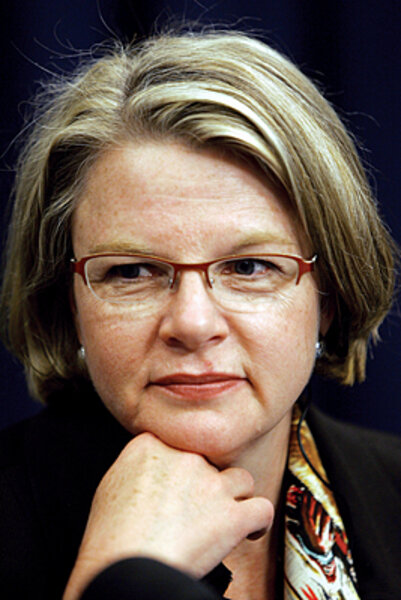The GOP needs to do more to stress "Republican-with-a-heart kind of stuff," says Margaret Spellings, President George W. Bush's domestic policy adviser and, later, Education secretary. "The anti-immigration, anti-education, anti-compassionate conservatism bent hurt us" in 2012, she says.
It's important that the Republican Party not "cede the ground" to Democrats on issues such as education and immigration, she says. Those "appeal broadly to women and Hispanics," adds Ms. Spellings, who now runs a strategic consulting firm in Washington and is a senior adviser to the US Chamber of Commerce.
As for controversial comments from male GOP candidates about rape, Spellings, the mother of two grown daughters, snaps, "I mean, what the heck!"
Spellings is aware of the risk in calling for a different GOP agenda: getting tagged as a RINO (Republican in name only). "What the challenge is to so-called RINOs, or moderate Republicans, is to get more engaged" with grass-roots party activities such as county and state conventions, she says. "We have to ... put our chardonnay down and do the grass-roots stuff that is necessary to be more influential in the party." Moderates need to be at the table at those "ground-floor levels" when controversial issues like immigration and abortion are discussed, she says.
"Some of those things have to get litigated [among Republicans] as issues," Spellings adds, "but I also think it is a point of emphasis, and it is nuance and it is talking about these things like we have a heart."
– Dave Cook, Staff writer







